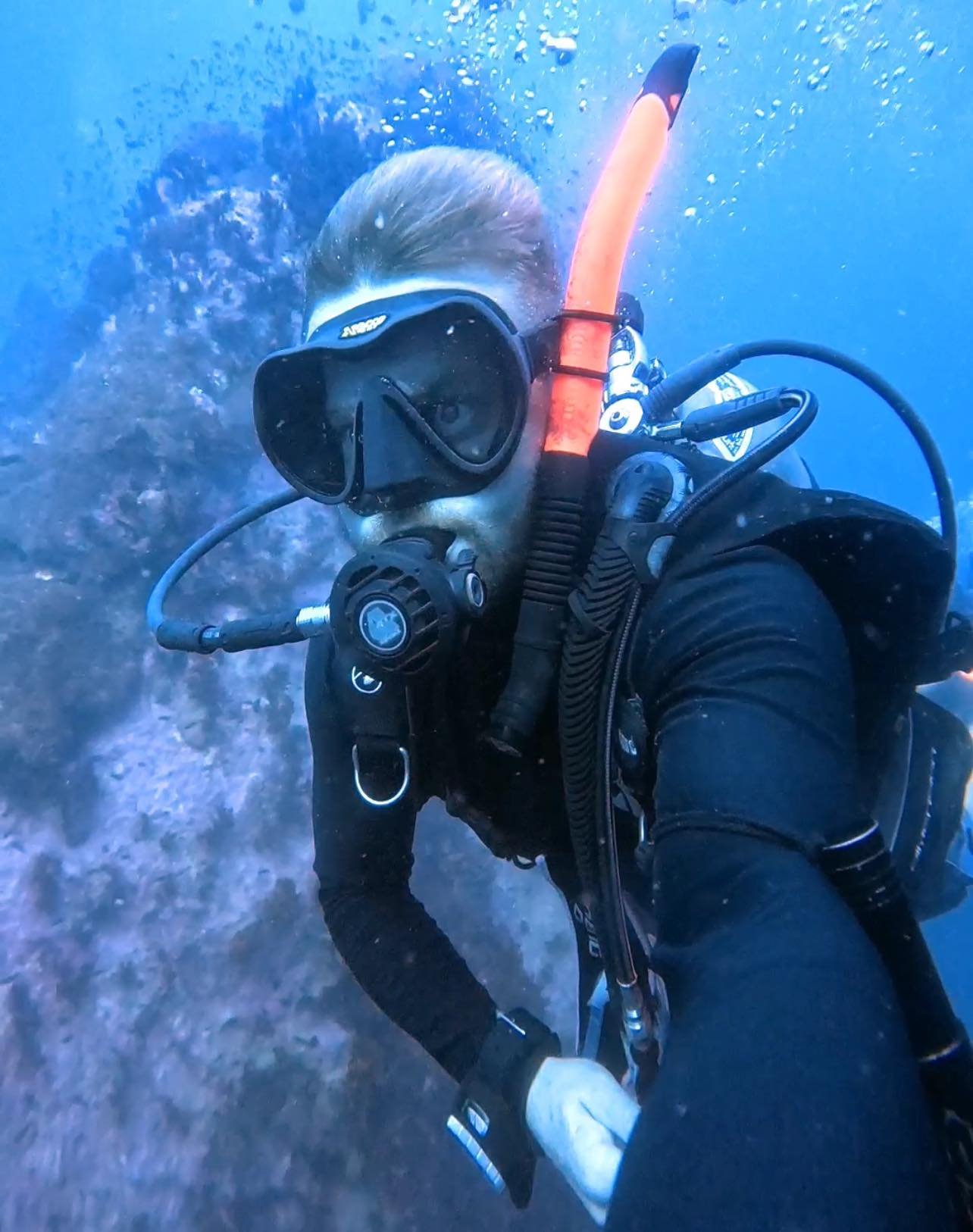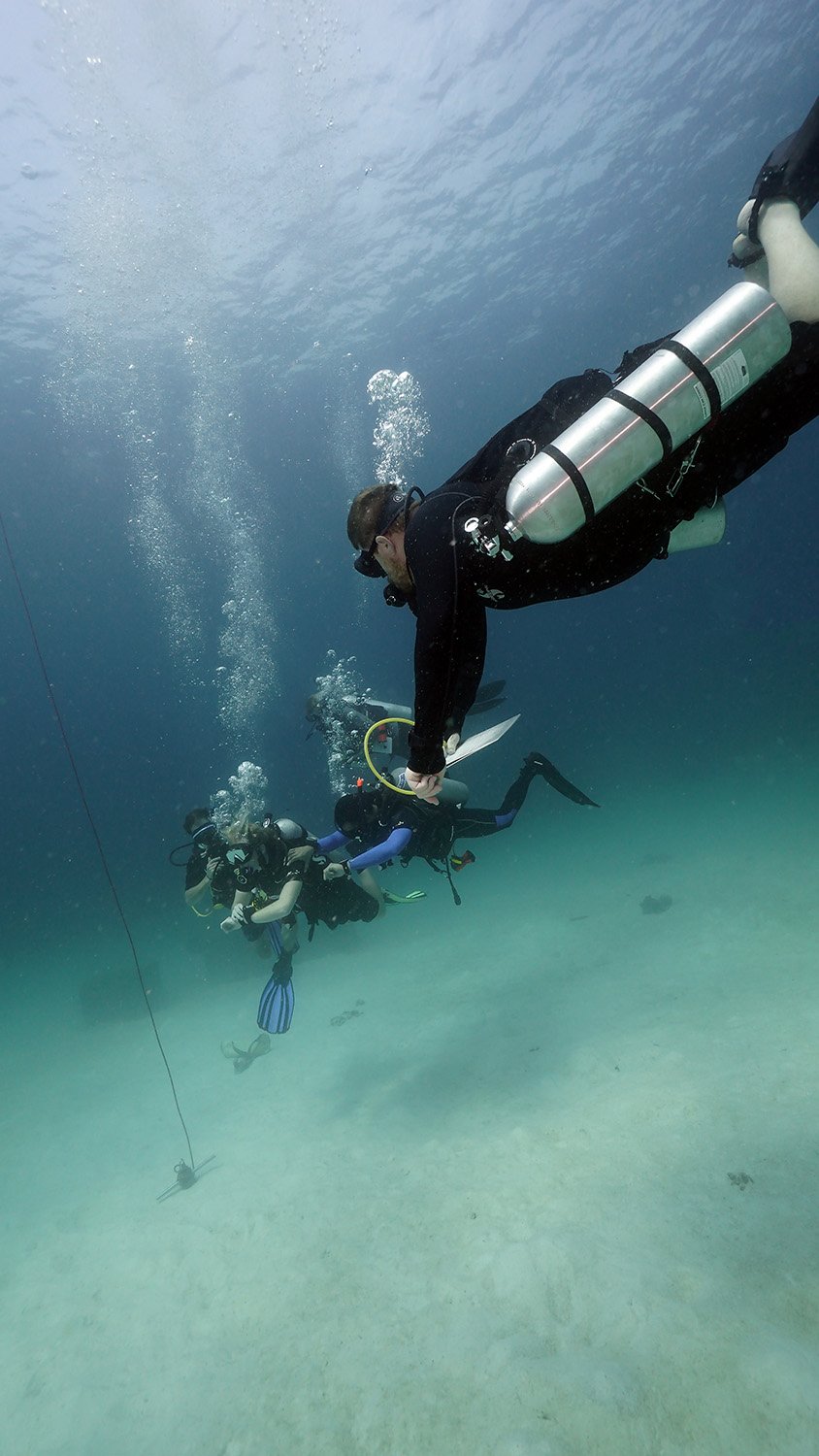Combating Scuba Instructor Burnout: From Repetition to Rejuvenation
By: Nina Horne, PADI Master Instructor
As the allure of the aquatic world continues to captivate the hearts of many, scuba instructors find themselves at the forefront of this fascination, guiding beginners through their first breaths underwater and helping them discover the marvels beneath the waves. However, amidst the beauty and excitement of this profession, there’s an often-unspoken challenge that lurks in the depths: instructor burnout. This article delves into the potential causes of this burnout and explores pathways to reignite the passion that first drew instructors to the ocean’s embrace.

Understanding the causes.
Same same, but different.
A primary factor contributing to scuba instructor burnout is the repetitive nature of teaching entry-level courses. While introducing novices to scuba diving is undoubtedly rewarding, consistently covering the same basic skills and concepts can become monotonous over time. This repetition can drain the enthusiasm and energy of even the most passionate instructors, turning what was once a dream job into a routine task.
Safety First
Being responsible for the safety and well-being of students, especially in an environment as unpredictable as the ocean, can be incredibly stressful. Instructors must constantly be vigilant and prepared for any emergencies, which can be mentally and physically taxing. This high level of responsibility, combined with the fear of potential accidents, can lead to anxiety and burnout.
The Social Battery
Scuba instructors often deal with a wide range of personalities and expectations. Managing students who are anxious, demanding, or uncooperative can be challenging. But also meeting people who are fun, outgoing and easy to spend time with, can make it difficult for instructors to spend time with family and friends or pursue personal interests and hobbies. The pressure to ensure that every student has a positive and memorable experience can be overwhelming and can lead to emotional exhaustion.
Where is the love?
Another significant cause of burnout is the lack of personal diving time. Many instructors enter the field driven by their love for diving and the underwater world. However, the demands of teaching, especially during peak seasons, can leave little room for diving purely for pleasure. This can lead to a feeling of disconnection from the joy and adventure that initially drew them to scuba diving.
Diving Into Solutions
To combat burnout, scuba instructors can explore various avenues to reignite their passion and add diversity to their underwater experiences. One such approach is to delve into specialties like underwater photography and videography. These skills not only add a new dimension to diving but also allow instructors to creatively capture and share the beauty of the underwater world. This creative outlet can be incredibly rejuvenating and can also enhance their teaching by providing visual aids and examples for students.

Furthering their own education in recreational courses such as side-mount, self-reliant, or technical diving is another excellent strategy. These advanced courses challenge instructors, expand their skill sets, and introduce them to new diving environments and experiences. By becoming students again, instructors can re-experience the excitement of learning and exploration, reminding them of the wonders of diving.
Advancing the Career: Becoming an MSDT
For instructors seeking to diversify their teaching portfolio and escape the monotony of entry-level courses, becoming a Master Scuba Diver Trainer (MSDT) offers an exciting opportunity. As an MSDT, instructors can teach a broader range of specialty courses, from Deep Diving and Wreck Diving to Night Diving and Enriched Air Diving. This not only breaks the routine of standard courses but also allows instructors to share their unique interests and passions within diving with their students. The process of becoming an MSDT, which involves gaining experience in teaching a variety of specialties, is in itself a journey of discovery and development.
The Next Step: Becoming a Staff Instructor
For those who are already MSDTs and looking to take their careers even further, becoming a Staff Instructor is an awesome way to do something different. As a Staff Instructor, one can mentor and train new instructors, sharing wisdom and experiences gained over years of teaching. This role not only represents a significant advancement in a diving career but also provides a refreshing change of pace. Training the next generation of instructors can be incredibly fulfilling, as it allows one to shape the future of the diving industry and witness the growth and development of new diving professionals.
Beat the Burnout!
In conclusion, scuba instructor burnout is a real and challenging issue, but it is not unbeatable. By embracing new learning opportunities, advancing their careers, and rediscovering the joy of diving, instructors can reignite their passion and continue to inspire and educate others in the magical world beneath the waves. The journey from repetitive teaching to renewed enthusiasm may require effort and dedication, but the rewards of a revitalized diving career are immeasurable.
© Crystal Dive Koh Tao

